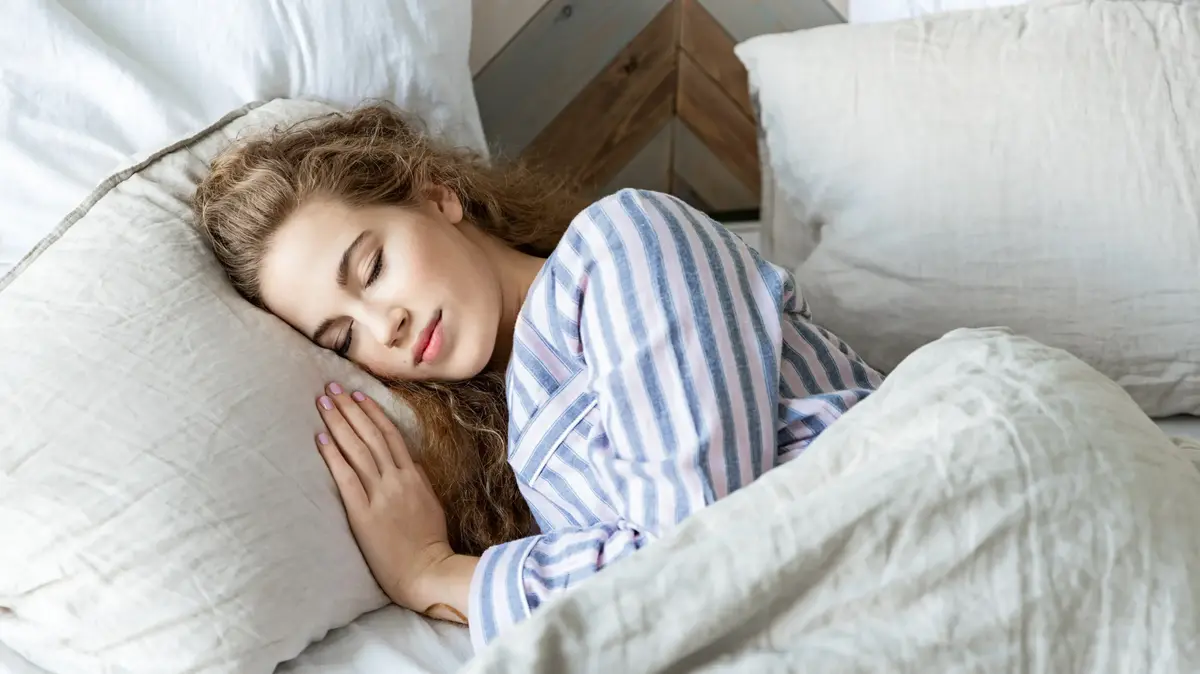The reasons why it is better to sleep in an unheated room/@dr.karanr
The low temperatures this winter are certainly prompting many of us to go to bed in warm, wrap-around pajamas, but experts say it's actually doing more harm than good.
According to them, sleeping in thick pajamas can lead to health problems and certainly has "disgusting" consequences for you and your bed and sheets.
Mattress experts at Winstons Beds have revealed the potentially horrifying consequences of wearing thick clothes to sleep.
If you don't want to get into a bed full of bacteria, you should choose lighter pajamas - yes, even sleeping naked has its drawbacks, so the wisest choice is light pajamas.
The optimal temperature for sleeping is between 17 and 19 degrees, but many winter pajamas made of thick material such as wool can cause the body heat to rise and cause the skin to itch and create unpleasant odors.
Rebecca Swain, mattress expert from Winstons Beds, said: "Many of us will pull out our thickest, warmest pajamas when the temperatures drop, but we want to offer a word of caution to those who wear them to sleep. While they can be a great way to keep warm in the weather The freezer, our body temperature will naturally rise throughout the night, beyond the optimal sleeping temperature of 17 to 19 degrees. The thick material may create an uncomfortable environment for sleeping and sweating, a situation in which nasty creatures such as dust mites may also gather."
Do not overdo it with the pajamas.
At night, the body temperature rises and sweat forms/ShutterStock, popcorner
The expert added: "This can worsen the skin condition and lead to a rash. In addition to skin pain, you may start to spread a sweaty and disgusting smell on your pajamas and sheets."
The warmer the pajamas are, the more you will sweat during the night - and the experts claim that a sleep that starts out pleasant very quickly may deteriorate: "Not only is it unpleasant to sleep in these clothes, but it is also very unhygienic. The dust mites, due to the excessive sweat, may also become to the problem. The sweat seeps through the sheets and onto the mattress."
For more bizarre and interesting stories from the world - come to our WhatsApp channel >>>
More on the subject:
This is why even going to bed without a shirt is not recommended.
One out of three people wakes up at 3 in the morning and has trouble falling asleep.
This is how you get rid of this habit
More in Walla!
Strategic location, spectacular view and luxurious apartments: the intriguing neighborhood being built in the center
In collaboration with Aora Real Estate
Go to bed in thin and light clothing/ShutterStock
The experts also emphasize that damage may occur to the mattress when sleeping in pajamas that are too hot since "bodily fluids may penetrate the mattress during the night, which may damage the material inside and leave yellow stains on the mattress. This will damage its quality and lead to its rapid deterioration."
More on the same topic:
sleep
sweat
pajamas
winter

